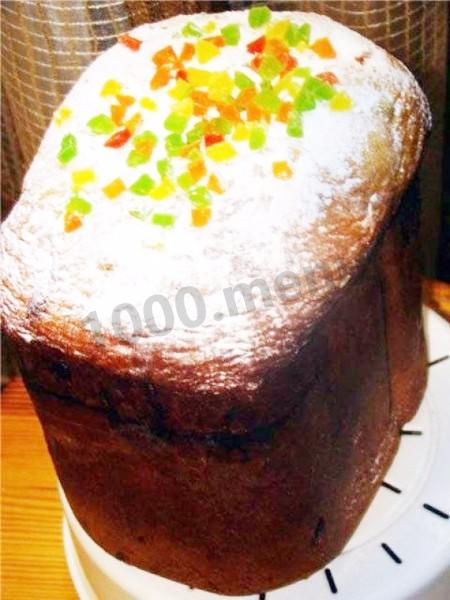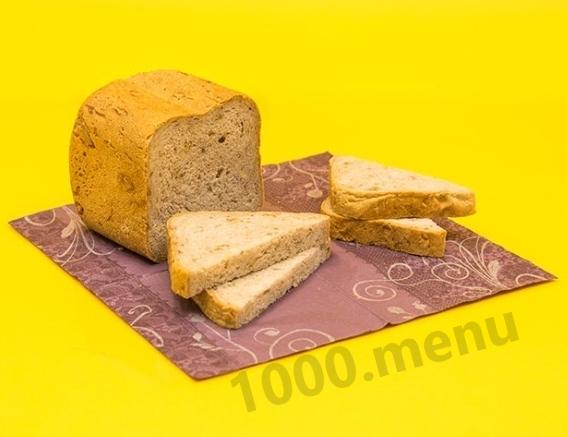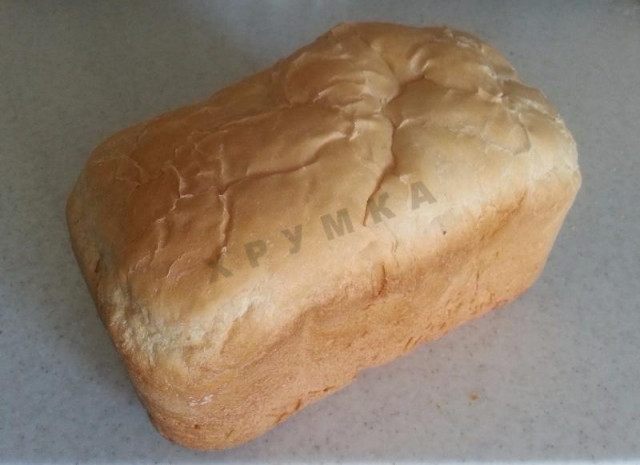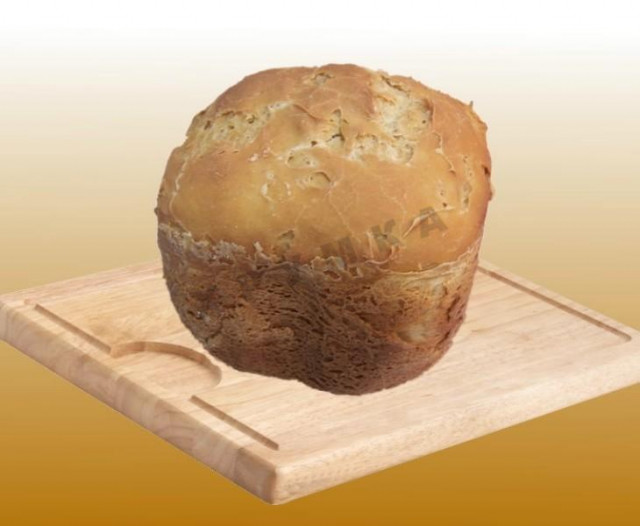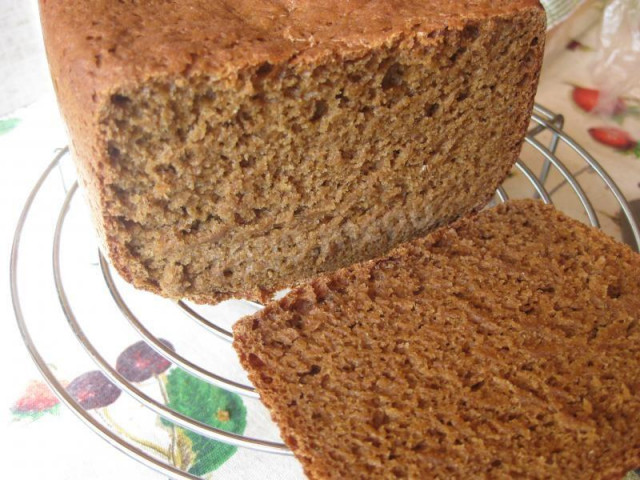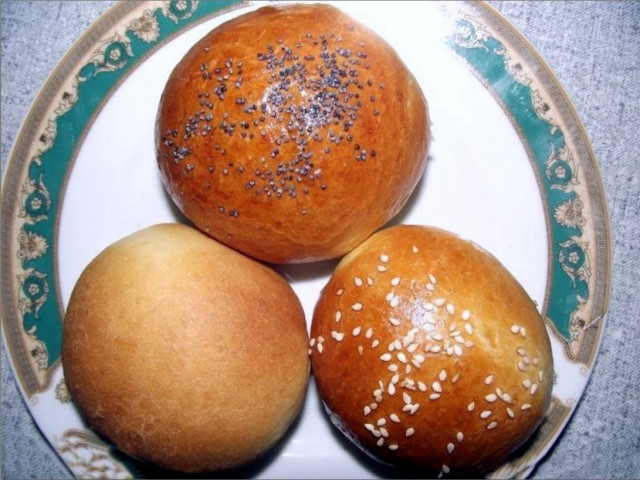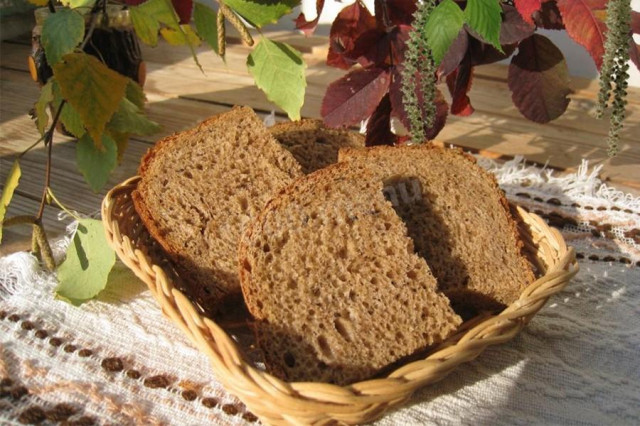Composition / ingredients
Step-by-step cooking
Step 1:
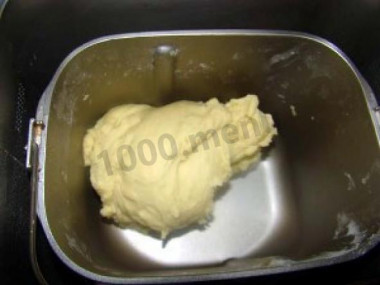
Take 160 ml of milk, add 160 g of butter, 100 g of sugar, 0.5 tsp of salt and heat until the oil dissolves (do not bring to a boil!). In a bucket, pour 2 tsp. of dry yeast and 400 g of flour. Pour the warm liquid from above, run the program for kneading the dough. The mass is collected in the likeness of a thick bun of irregular shape, somewhat even torn.
Step 2:
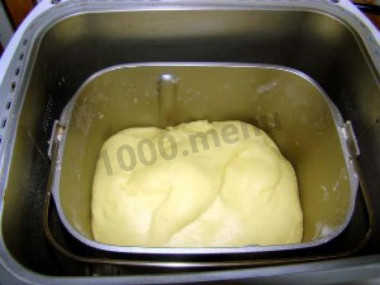
Leave the dough to rise for 1 – 1.5 hours. If the room is cool, then we transfer the bucket to a warm place.
Step 3:
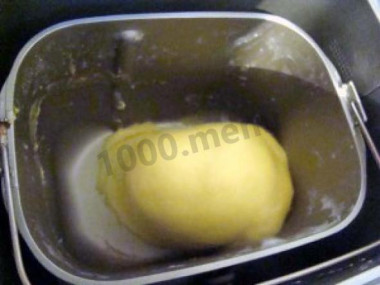
Take the eggs and separate the whites from the yolks. Rub about 50 g of sugar with yolks and a pinch of turmeric, and add 0.5 tsp of citric acid to the proteins and beat them to a stable foam, gradually adding about 50 g more sugar. When the dough in the bucket rises almost to the edge, we run the kneading program again, the dough deflates like a balloon, and we quickly add the crushed yolks and wait for them to interfere with the dough.
Step 4:
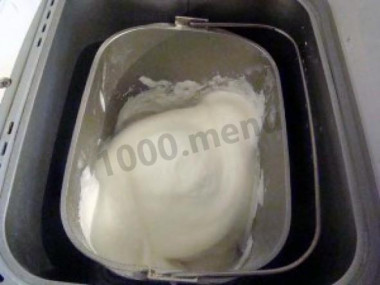
The yolks intervened, we interrupt the program and turn on a new batch so that at low speeds of the mixer we have time to add proteins. We cover the bucket with a towel so that the white flakes do not accidentally scatter all over the kitchen. After adding proteins, the dough is kept like a bun only thanks to the turns of the stirrer, it becomes quite liquid after the blade stops.
Step 5:
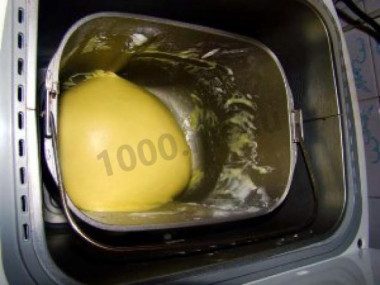
If necessary, you can add flour immediately after the proteins are mixed, but the dough should remain sufficiently liquid, it should not be held by a bun.
Step 6:
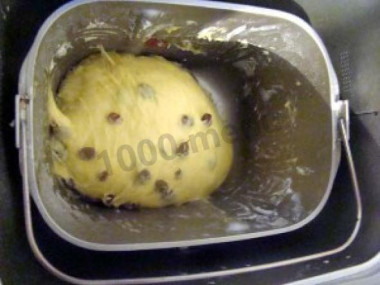
Take 160 g of additives (dried apricots, raisins, candied fruits) mix with 2 g of vanilla and flour and add to the dough.
Step 7:
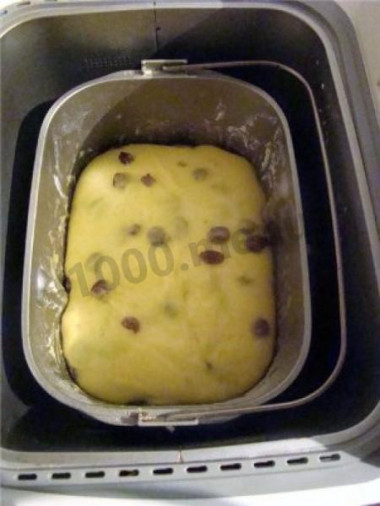
After all the additives have intervened well, turn off the stove and leave the dough to rise for another 1 – 1.5 hours. We start baking when the dough reaches a little more than 2/3 of the bucket.
Step 8:
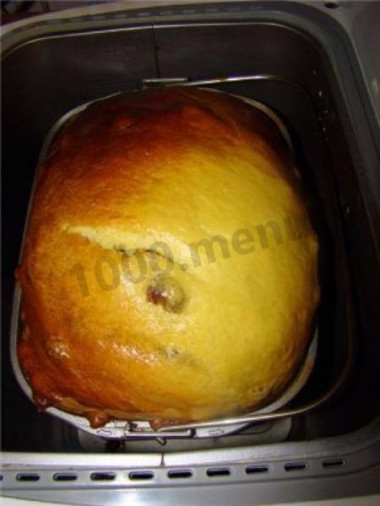
Grease the top before baking. Bake for 1 hour. You can immediately put the baking on for 1h 10 min., after an hour, look in and leave a little more if someone likes a more tanned one.
Step 9:
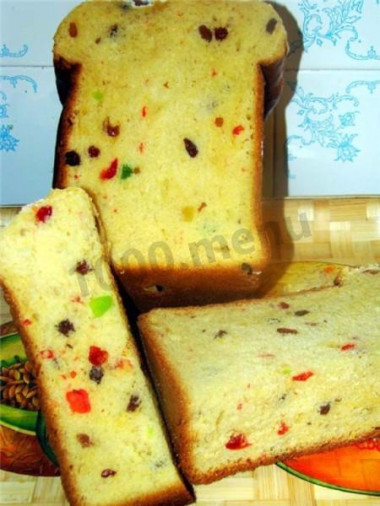
The cake is stored for about 5 days. After a couple of days, the cake ripens, it only gets tastier.
Caloric content of the products possible in the composition of the dish
- Whole cow's milk - 68 kcal/100g
- Milk 3.5% fat content - 64 kcal/100g
- Milk 3.2% fat content - 60 kcal/100g
- Milk 1.5% fat content - 47 kcal/100g
- Concentrated milk 7.5% fat content - 140 kcal/100g
- Milk 2.5% fat content - 54 kcal/100g
- Chicken egg - 157 kcal/100g
- Egg white - 45 kcal/100g
- Egg powder - 542 kcal/100g
- Egg yolk - 352 kcal/100g
- Ostrich egg - 118 kcal/100g
- Dried Fruits - 250 kcal/100g
- Turmeric - 325 kcal/100g
- Whole durum wheat flour fortified - 333 kcal/100g
- Whole durum wheat flour, universal - 364 kcal/100g
- Flour krupchatka - 348 kcal/100g
- Flour - 325 kcal/100g
- Granulated sugar - 398 kcal/100g
- Sugar - 398 kcal/100g
- Butter 82% - 734 kcal/100g
- Amateur unsalted butter - 709 kcal/100g
- Unsalted peasant butter - 661 kcal/100g
- Peasant salted butter - 652 kcal/100g
- Melted butter - 869 kcal/100g
- Citric acid - 0 kcal/100g
- Salt - 0 kcal/100g
- Vanilla sugar - 379 kcal/100g
- Candied fruit mixture - 216 kcal/100g
- Dry yeast - 410 kcal/100g

